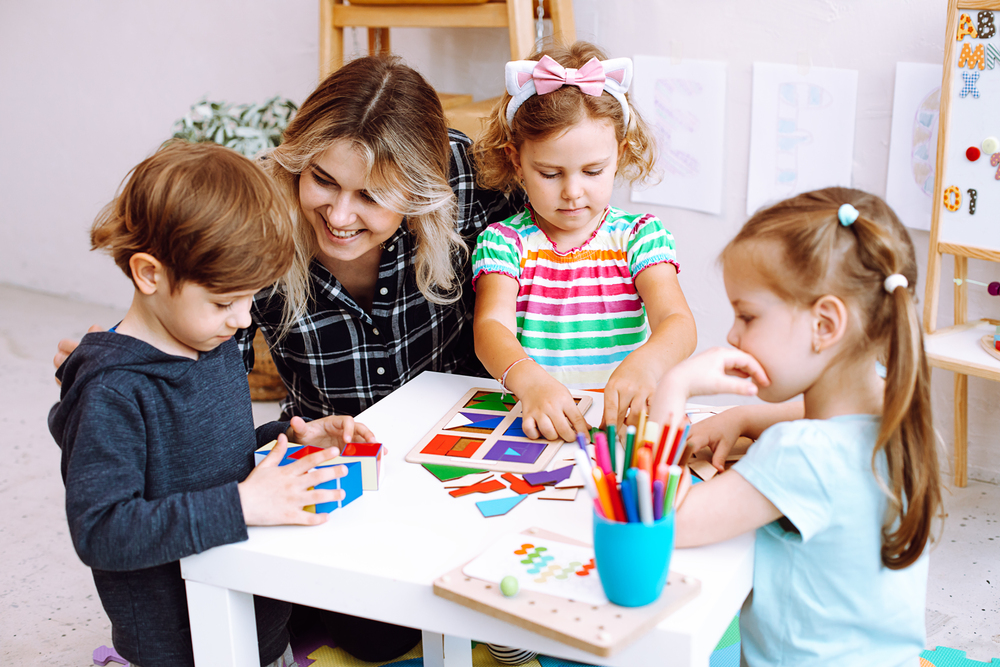
In a world where screens dominate much of our time, it’s easy for parents to feel overwhelmed by the challenge of finding ways to engage their children meaningfully. Yet, learning through play remains one of the most effective methods to boost your child’s skills, combining fun activities for your kids with opportunities for growth. By incorporating educational games and hands-on activities into your child’s daily routine, you can help them develop cognitive, social, and emotional skills in a way that feels like play rather than a chore.
The Power of Learning Through Play
Learning through play is a natural way for children to explore the world around them. It helps them develop critical thinking, problem-solving abilities, creativity, and social skills. When children are engaged in play, they are more likely to retain information and develop a love for learning that extends beyond the classroom. This approach encourages curiosity and fosters a positive attitude towards challenges, making it a powerful tool in boosting a child’s overall development.
Educational Games for Skill Development
1. Board Games That Teach Strategy and Patience
Board games like “Chess,” “Monopoly,” and “Scrabble” aren’t just classics—they’re also excellent tools for teaching strategy, patience, and vocabulary. Games like “Chess” help children learn to think ahead and anticipate their opponent’s moves, building critical thinking skills. “Monopoly” introduces concepts of money management, negotiation, and planning. “Scrabble” boosts vocabulary and spelling in a fun, competitive way. These games require turn-taking, rule-following, and patience, all of which are valuable life skills.
2. STEM-Based Toys for Science and Math Skills
STEM (Science, Technology, Engineering, and Math) toys are designed to make complex concepts accessible and enjoyable. Kits like “LEGO Education,” “Magformers,” and “Osmo Coding” allow kids to build structures, explore coding basics, and engage in hands-on problem-solving. These toys help develop spatial awareness, improve fine motor skills, and introduce fundamental principles of math and science. The key is to present these activities as fun challenges rather than educational tasks, keeping your kids engaged and eager to learn.
3. Interactive Learning Apps and Online Games
In today’s digital age, screen time can also be educational. Apps like “Khan Academy Kids,” “Prodigy Math,” and “ABCmouse” offer interactive learning experiences that are both educational and entertaining. These platforms adapt to your child’s learning pace and style, providing a personalized approach to skill development. Integrating such apps into your child’s routine as part of their fun activities can make learning a seamless extension of playtime.
Hands-On Activities to Enhance Creativity and Problem-Solving
1. Arts and Crafts Projects for Creativity
Arts and crafts are not only enjoyable but also great for developing fine motor skills, creativity, and self-expression. Activities like painting, drawing, and building models encourage children to think outside the box and express their ideas visually. Projects such as creating a family scrapbook or designing homemade greeting cards can be wonderful ways to incorporate family bonding into the creative process.
2. DIY Science Experiments
Simple DIY science experiments can transform your kitchen into a mini-laboratory. Activities like making a volcano with baking soda and vinegar, creating slime, or growing crystals are exciting ways to introduce scientific concepts at home. These experiments teach observation, hypothesis testing, and cause-and-effect relationships in a hands-on, memorable way. Plus, they provide excellent content for social media engagement—sharing your child’s experiments online can inspire other parents to join in the fun.
3. Role-Playing and Imaginative Play
Role-playing games, such as playing “doctor,” “chef,” or “teacher,” allow children to explore different roles and scenarios, enhancing their social and emotional skills. Imaginative play fosters empathy, problem-solving, and decision-making as kids navigate through various pretend situations. These activities can be enriched by using props or costumes, making the experience even more immersive and engaging.
Encouraging Social Skills Through Group Play
1. Team Sports and Cooperative Games
Team sports and cooperative games like “soccer,” “basketball,” or “relay races” teach valuable lessons in teamwork, communication, and perseverance. These activities require children to work together towards a common goal, developing their ability to collaborate and resolve conflicts. They also provide a healthy outlet for physical energy, contributing to overall well-being.
2. Group Puzzles and Building Challenges
Activities like group puzzles or building challenges with blocks or LEGO bricks are perfect for fostering cooperation and collective problem-solving. Working together to achieve a shared objective encourages kids to listen to each other, share ideas, and find solutions collaboratively. These fun activities for your kids also help them build patience and resilience as they work towards completing the task.
Leveraging Social Media Engagement
Social media can be a powerful tool to enhance the learning experience. Platforms like Instagram, Facebook, and Pinterest are filled with ideas and inspiration for fun activities for your kids. By sharing your child’s learning journey on social media, you can engage with a community of parents, educators, and experts who can provide support, advice, and new activity ideas. Additionally, documenting and sharing your child’s progress can motivate them to take pride in their accomplishments, further reinforcing the value of learning through play.
Learning through play is not only effective but also essential for the holistic development of children. By incorporating educational games and hands-on activities into your child’s routine, you can create a nurturing environment that promotes curiosity, creativity, and a love for learning. Whether through STEM toys, board games, or role-playing, the possibilities are endless. And by leveraging social media engagement, you can further enhance this experience, making learning a shared adventure that extends beyond your home. So, dive in and explore the many ways to make learning a joyful and rewarding part of your child’s everyday life!
